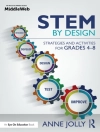‘This book comprises a wide range of scholarly essays introducing readers to key topics and issues in science education. Science education has become a well established field in its own right, with a vast literature, and many active areas of scholarship. Science Education: An International Course Companion offers an entry point for students seeking a sound but introductory understanding of the key perspectives and areas of thinking in science education. Each account is self-contained and offers a scholarly and research-informed introduction to a particular topic, theme, or perspective, with both citations to key literature and recommendations for more advanced reading.
Science Education: An International Course Companion allows readers (such as those preparing for school science teaching, or seeking more advanced specialist qualifications) to obtain a broad familiarity with key issues across the field as well as guiding wider reading about particular topics of interest. The book therefore acts as a reader to support learning across courses in science education internationally. The broad coverage of topics is such that that the book will support students following a diverse range of courses and qualifications. The comprehensive nature of the book will allow course leaders and departments to nominate the book as the key reader to support students – their core ‘course companion’ in science education.’
Jadual kandungan
Preface.- Introduction.- Science Education as a Field of Scholarship.-Section I: Nature of Science and Science Education.- Reflecting the Nature of Science in Science Education.- History and Nature of Science in Science Education.- Beliefs and Science Education.- Epistemic Practices and Scientific Practices in Science Education.-Interdisciplinarity and Science Education.- Section II: Thinking and Learning in Science.- Learning Theories in Science Education.-Scientific Reasoning During Inquiry: Teaching for Metacognition.- The Nature of Student Conceptions in Science.- Tacit Knowledge in Science Education: The Role of Intuition and Insight in Teaching and Learning Science.- Developing Visual/Spatial Thinking in Science Education.-Language, Discourse, Argumentation, and Science Education.- Section III: The Science Curriculum.- Curriculum Development in Science Education.- Science Curriculum Development Initiatives.- Curriculum Implementation in Science Education.- Curriculum Implications of the Integration of Mathematics into Science.- Integrating Engineering Concepts and Practices into Science Education: Challenges and Opportunities.- Section IV: Science Teaching.- Essential Instructional Practices for Science Teaching.- Inquiry-Based Science Education.-Models and Modelling in Science and Science Education.- Context-Based Teaching and Socio-Scientific Issues.- Assessment in Science Education.- Teaching and Learning Physics.- Teaching and Learning Chemistry.- Teaching and Learning Biology.- Section V: Resources for Science Teaching.- The Role of Laboratory in Science Teaching and Learning.- Emerging Technologies and Science Teaching.- 21st Century Skills and Science Learning Environments.- Minds-On Practical Work for Effective Science Learning.- Section VI: Informal Science Education.- Educational Visits and Science Education.- Learning Science in Informal Contexts.- Public Understanding of Science.- Section VII: Inclusive Science Education.- Equity in Science Education.- Science Education and Indigenous Learners.- Science Education for Gifted Learners.- Science Education for Sustainable Development.- Section VIII: Science Teacher Education.- Pedagogical Content Knowledge.- Teacher Preparation for Science Education.- Research Perspectives and Skills for Science Education.- Further Professional Development of Teachers.- National and International Linkages for Science Education through Science Teacher Associations.- Contributors.- Index.












